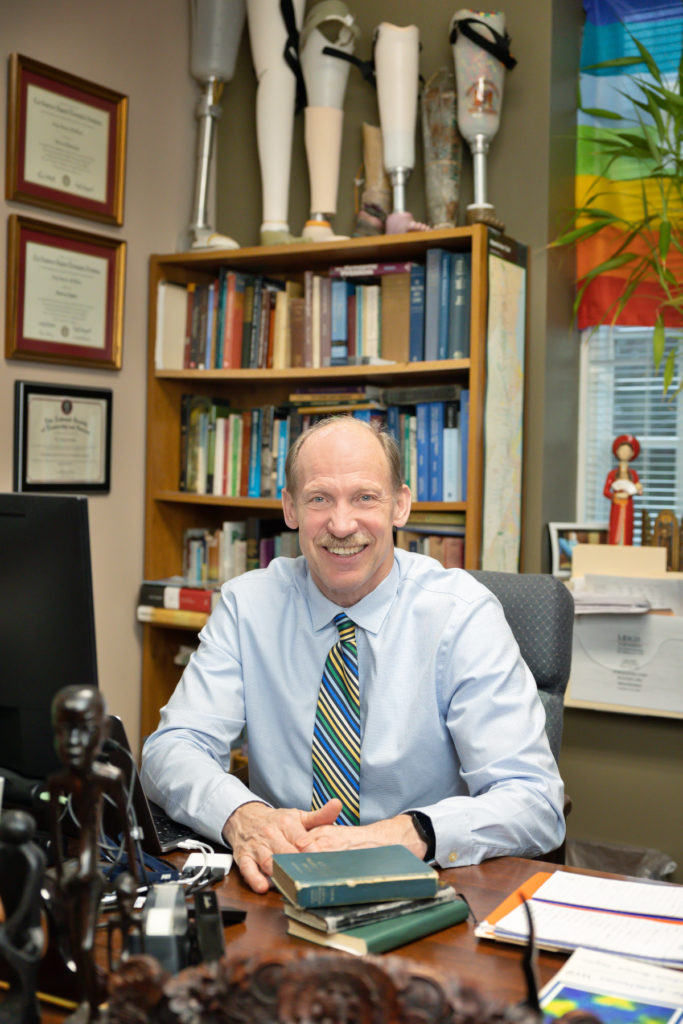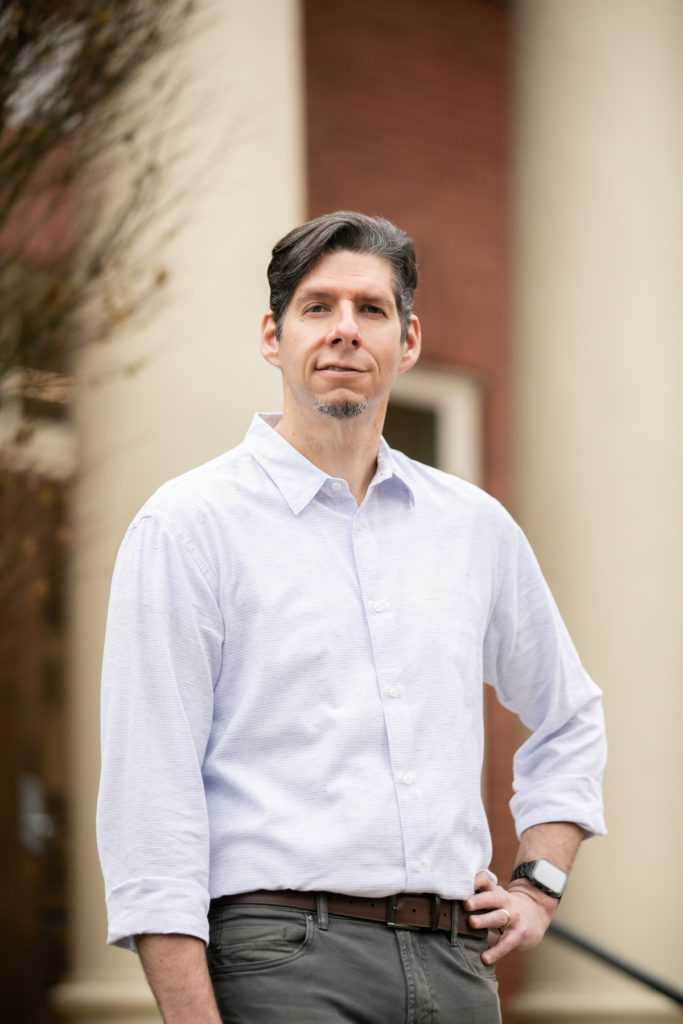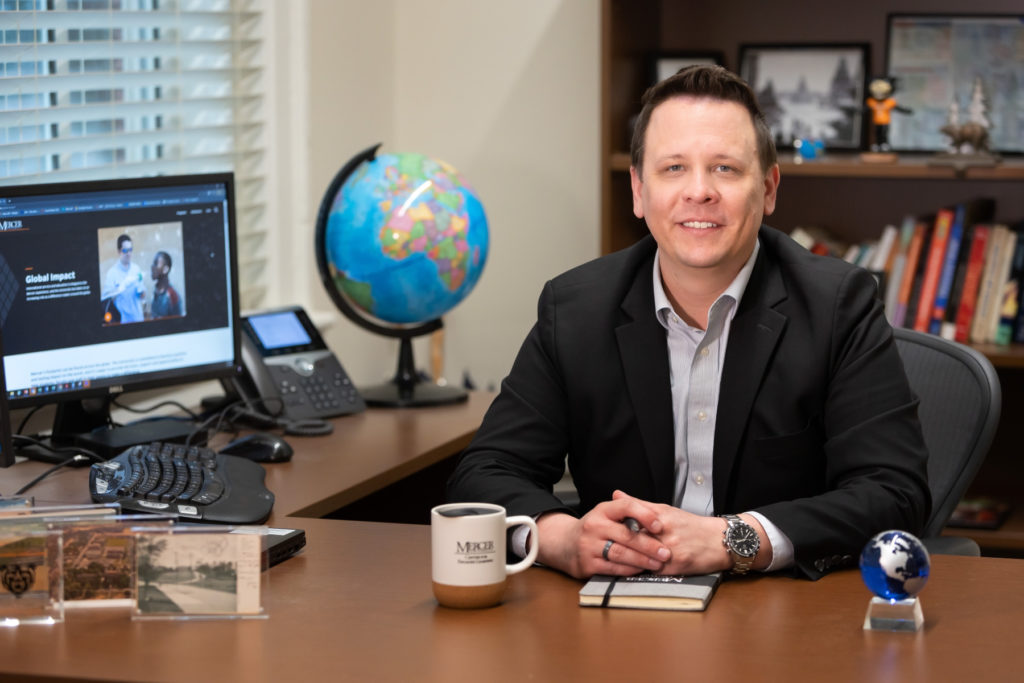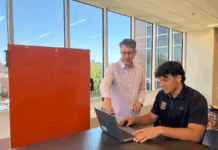Twentieth-century anthropologists coined the term “liminality” to describe transitional moments when people become separated from their previously held identity, beliefs and habits and have the opportunity to become someone completely new.
University Minister and Dean of Chapel Dr. Craig McMahan believes the concept of liminality encapsulates why Mercer University has prioritized international experiences to push students beyond their literal and metaphorical borders.

“It’s like driving to the grocery store that you’ve done 1,000 times. You stop paying attention, because it’s just down the street,” said Dr. McMahan. “But if you’re having to drive to the grocery store in Vietnam, you have to pay attention to every meter that your car or scooter is driving because you don’t know where you’re going. Everything is in front of you to be understood as a blank slate, brand new, and so that creates a much richer learning environment for students.”
“Being a Global University” is among the seven imperatives of Mercer’s current 10-year strategic plan, launched in 2018, which calls for developing new and additional study abroad opportunities for students, as well as increasing the number of students participating in Mercer On Mission, the University’s distinctive service-learning and study abroad initiative launched in 2007 by Dr. McMahan.
“Mercer has the opportunity, if not the obligation, to help our students expand their horizons, both metaphorically in the sense of personal growth and literally in the sense of moving beyond their comfort zone into new environments and encounters with new cultures and different people,” said Dr. David A. Davis, director of fellowships and scholarships and professor of English. “In that process, our students transform from being focused primarily on themselves to thinking about others, and this is how Mercer helps students find their way to change the world.”
Mercer On Mission, Peace Corps Prep, the Fulbright Program, the Gilman Scholarship and various international faculty-led and exchange programs through the Office of Global Engagement provide accessible, meaningful opportunities for global learning to all students.
“Global education is really at the forefront of our recruiting process,” said Felix Jelen, assistant vice president for global engagement. “I think this is one of the reasons why we saw an uptick in overall enrollment through the pandemic, which speaks to how our values really resonate with students.”

On the verge of the COVID-19 pandemic, Mercer saw all-time highs in the number of students enrolled in faculty-led study abroad, traditional exchange and Mercer On Mission experiences. Approximately 500 students participated in these programs during the 2019-20 academic year, up 40% from just four years earlier and exponentially from previous decades.
“Over the past 15 years, I’ve seen international programs go from being occasional experiences, primarily as individual students taking advantage of abroad programs, to becoming large cohort programs where now hundreds of students are going abroad each year through Mercer On Mission, faculty-led summer programs and semester-long exchange programs with our partners from around the world,” said Dr. Davis.
With strict travel limitations during the 2021-22 year, the University’s commitment to providing its distinctive educational experience through in-person learning informed by carefully developed health and safety protocols resulted in Mercer resuming international programs earlier than most in higher education. A total of 363 students participated in international programs in 2021-22 at a time when study abroad opportunities were still very limited.
“Running study abroad was a very, very edgy move in 2021-22, but it really showed the commitment of the University to the Mercer experience,” said Jelen. “Now we’re in a position where we’re ready to go, when a lot of other universities in the country are just putting their toes back in the water this year.”
Jelen anticipates participation in 2022-23 to bounce back to pre-pandemic levels — and likely beyond.
“We expect this to be a record-breaking year,” he said. “I think that there is a strong desire that has been stoked during the pandemic when people weren’t able to move as much. Part of the Mercer experience that our students were looking for when we recruited them was this international piece.”

Mercer’s recent success is reflected in a record five Mercerians who were selected in 2021-22 to participate in the Fulbright Program, the nation’s flagship international education program. They are among a total of 30 students and alumni who have received Fulbright Awards since 2010.
The University ranked fourth nationally among Peace Corps Prep certificate-issuing programs in 2021, just three years after Mercer was selected to participate in the program to enhance students’ undergraduate experience by preparing them for international development fieldwork and potential Peace Corps service.
Perhaps most importantly, Mercer was recognized this fall as the top producer of Benjamin A. Gilman Scholars among U.S. institutions with fewer than 5,000 undergraduate students. Gilman Scholarships expand access and equity in study abroad and international internship opportunities among students with high financial need.
The University prides itself on providing access to international experiences to all students through emphasis on the Gilman Scholarship, as well as subsidizing Mercer On Mission and other international experiences through programs like the Office of Global Engagement’s Global Leader Scholarships.
“Mercer’s approach to internationalization is consistent with our overall values,” said Jelen. “Institutions tend to view international students as sources of revenue, while Mercer has looked at them as how can they contribute to the overall community of learning and engagement. And I’d say the same about how we think about sending students abroad. The number of Gilman Scholars, Global Leader Scholars and institutional scholarships is atypical because usually study abroad and global education is something that’s available to people who have the means to pay for it. With our programs, there’s been a commitment to keeping access open regardless of socioeconomic status.”










